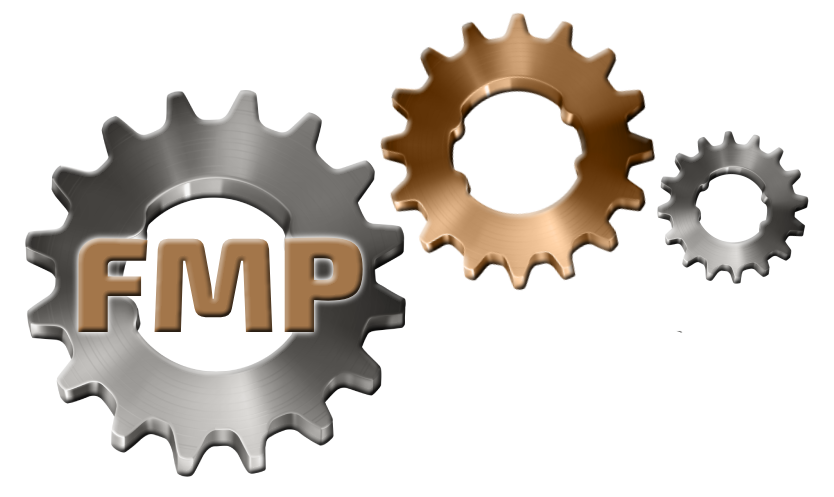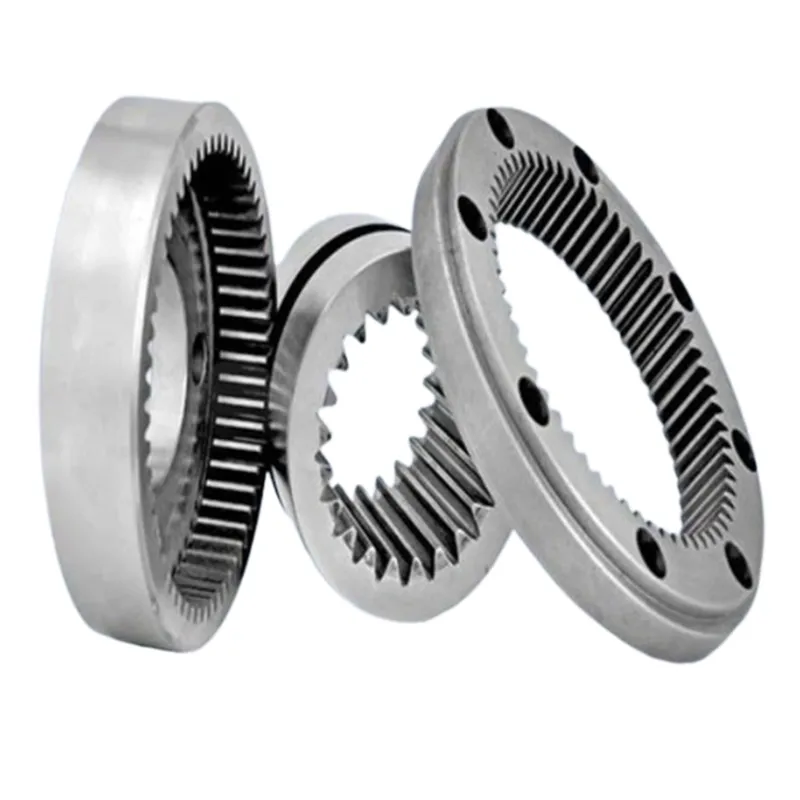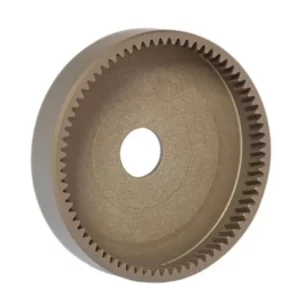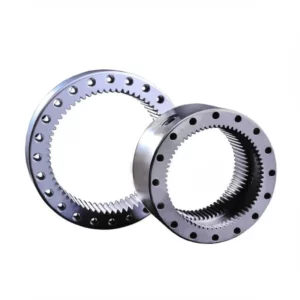An involute internal gear is a type of gear with teeth cut along an involute curve on its inner cylindrical surface, designed to mesh with an external gear, offering smooth power transmission, high efficiency, and reduced noise in mechanical systems.
Specifiche del prodotto
| Forma del dente | Involute |
| Materiale | Alloy Steel And Stainless Steel |
| Forma | Girare |
| Modulo | Max Up to 4.0 mm |
| Inner Diameter | Max 30 mm |
| Applicazione | Planetary Gearboxes And Automotive. |
| Quantità minima d'ordine | 50 Piece |
The teeth on the inner circle are internal gears, usually in internal meshing gear mechanisms, and the gears on the ring gear are internal.
Features of Involute Internal Gear
An involute internal gear features teeth with an involute curve profile cut on the inner surface of a cylindrical ring, enabling smooth meshing with an external gear. The involute shape ensures conjugate action and a constant velocity ratio, while a typical 20° pressure angle maintains uniform force distribution. This design supports same-direction rotation with its mating gear, distinguishing it from external gear pairs.
The gear’s compact design and significant profile shift help avoid interference (involute, trochoid, or trimming) and enhance tooth strength, making it ideal for high-reduction applications like planetary systems. Its concave tooth profile improves load distribution, potentially increasing durability. These characteristics suit it for high-torque, space-constrained uses such as automotive differentials and industrial machinery.
Manufacturing internal gears typically involves gear shaping rather than hobbing due to their internal geometry, requiring specialized tools. Interference management is critical, often addressed by adjusting addendum, dedendum, or profile shift, ensuring reliable performance in demanding applications.




